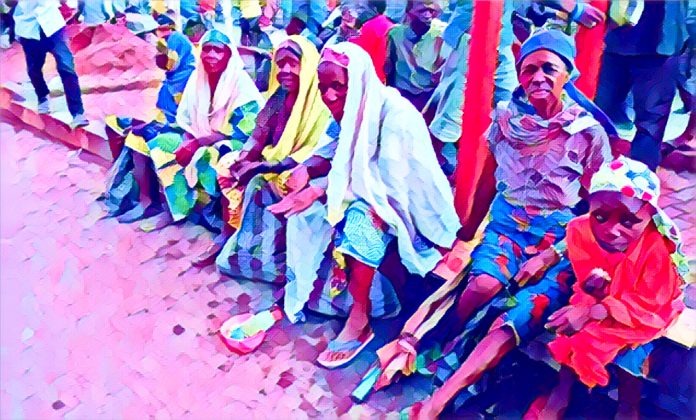KEY POINTS
- Nigerian culture values giving to beggars, seen as a way to gain divine blessings.
- Economic hardships are forcing beggars to extend their begging hours due to reduced donations.
- Many Nigerians now prioritize supporting their families over giving alms to beggars amid the economic crisis.
Giving to the needy is an act that is ingrained in the Nigerian culture. Many people firmed believe that beggars are sometimes angels sent from God to test if they are kind or not.
Others also believe that when a barren woman gives to beggars who are children, heaven will smile on her and she will give birth to children of her own.
However, the state of the economy is stifling life out of these beliefs.
Economic hardship reduces alms to beggars
According to a report by Vanguard, the current economic state is making most beggars beg till late in the night to meet their daily targets. This was not so before the economic downturn.
Hauwa Garba, a beggar with three children said “People hardly give us money nowadays. I have been begging since 2018.
“Then people used to give N500, N200, clothes, food for myself and children.
“Now, people don’t even look at me or the children. The act of giving has reduced a lot.
“The highest denomination I received today was N100. I don’t blame them but the poor economy.
“So to meet up with footing my bills, I beg till late night. “This is because I pay for the space I retire to after begging. There are very many of us living there and everyone must pay their share of the rent.”
Dogo Kubure, a disabled beggar in his 40s, reported that he started closing by 9 p.m. after following the counsel of a fellow beggar to extend their begging time in order to make more than enough.
He said, “Before, I went home with at least N1,000 daily apart from the various food items people gave me.
“Now, I hardly go home with N500.
“Today, I made just N200. This is to show you the extent how which the economy has reduced our benefactors.”
Nigerians shift focus from beggars to family
To confirm the reduction in the act of giving alms to roadside beggars, Mercy Udchukwu, a skincare seller said she has stopped giving alms and decided to keep the little she has to her family members.
“In a day up to two to three people in my family are seeking financial help.
“Sometimes I promise to give them and I fulfil my promise. “Other times I just tell them I am also struggling.
“Before, in a week I give beggars up to N1,000 when I go out. Some even come in groups to my shop to solicit financial help.
“But now, I don’t give them because I am struggling to survive and the little I can spare I give to my family who are also in need.”
Mr. Matthew Bankole, a surveyor, also said – “What I do now is give alms in my church. We have a special donation for the needy.
“Such as widows and those who are struggling to survive in this economy.
“I also support my family members who are also struggling.
“The way the economy is now, people hardly render help anymore.
“Even when you have the money, prefer to give it to immediate family members who are striving to survive.
“People don’t even have pity anymore.
“That is what has extended into our tradition of giving. The current economic situation has killed pity.”
The report of these kind-hearted Nigerians is quite relatable, as so many people are currently struggling to fend for themselves and their families. However, we must always remember that the act of giving is not about what one has but about the largeness of one’s heart.
We must keep the needy in our hearts whether the economy flourishes or not.



